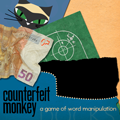Counterfeit Monkey — 26 of 292
Emily Short
Section 6 - Varieties of Person
[Most of the characters in the game fall into one of four categories: native, tourist, criminal, police. These categories allow us to define appropriate behavior for the "universal reactions" where there aren't individual separately-coded responses for every character.]
A person can be native, tourist, criminal, or police. A person is usually native.
Rule for expressing ignorance for a tourist person:
say "[one of]'You might be better off asking someone else[or]'I really don't know a lot about that[or]'I'm pretty new around here myself[at random],' says [the current interlocutor].[run paragraph on]"
Rule for expressing ignorance for a police person:
say "[one of]'That's official information[or]'There are security reasons why I can't discuss that[or]'I'd have to ask my manager[or]'We aren't supposed to answer questions of that sort[at random],' says [the current interlocutor].[run paragraph on]"
When play begins:
[now every person in the zoo is tourist;
now every person in the Customs House is police;]
now every person in Official Grounds is police.
[Characters also have certain traits, which may occur in combination or alone and are not mutually exclusive, and which govern reactions to common questions.]
A conversation trait is a kind of value. The conversation traits are unhelpfulness, privacy, courtesy, caution, and vanity.
Exhibition relates various people to various conversation traits. The verb to exhibit (it exhibits, they exhibit, it exhibited, it is exhibited) implies the exhibition relation.
[Unhelpfulness means that they're less willing to listen to a lot of questions and assist you if you're a tourist. Privacy means they're less willing to answer questions about themselves or their personal beliefs. Courtesy means they're more likely to be apologetic, etc., when making dispreferred conversational choices. Caution means that they're likely to avoid situations leading to demands on themselves. Vanity means they're more likely to assume that you're hitting on them (in the ostensible motives line).]
